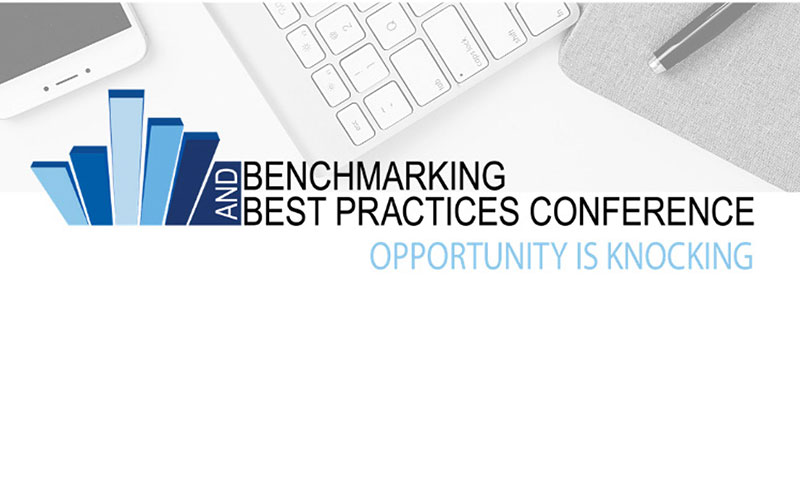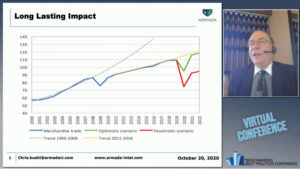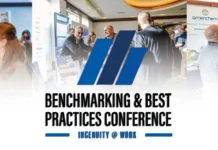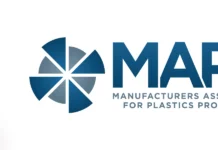Plastics Business
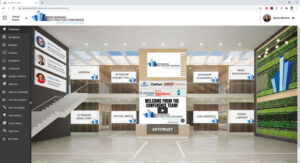 With COVID-19 interrupting travel plans and restricting large gatherings, the MAPP team reacted rapidly to create an online conference experience that not only delivered value, but also ensured connections could still be made among attendees. The Benchmarking & Best Practices Conference was held October 19 through 23, featuring keynote speakers, prerecorded learning experiences with live question and answer sessions, a virtual sponsor exhibit area and two online receptions for attendees.
With COVID-19 interrupting travel plans and restricting large gatherings, the MAPP team reacted rapidly to create an online conference experience that not only delivered value, but also ensured connections could still be made among attendees. The Benchmarking & Best Practices Conference was held October 19 through 23, featuring keynote speakers, prerecorded learning experiences with live question and answer sessions, a virtual sponsor exhibit area and two online receptions for attendees.
The virtual conference allowed companies an advantage over the traditional in-person event: Rather than sending a few team members to Indianapolis, processors were able to register the entire staff. This led to a record-breaking 1,000+ registrations, with many new event attendees.
Chat functions were enabled during keynotes and sessions, allowing attendees to interact and share thoughts about speaker content. The receptions, held Tuesday and Thursday after sessions were completed, were in the form of live Zoom meetings with small breakout rooms. Industry friends gathered to reconnect, reflect on the day’s meetings and share their experiences.
More than 50 keynotes, sessions and breakout discussion opportunities offered unprecedented learning during the annual conference, and a brief look at some of that content is provided here. Event content will remain online and available to registered attendees until late November.
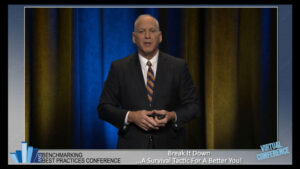 Opportunity is Knocking
Opportunity is Knocking
Troy Nix, MAPP Executive Director
Opportunity is knocking. It’s ironic – we developed this theme months ago, before the pandemic, and suddenly we came into a worldwide crisis. Over the last seven or eight months, some of us haven’t heard opportunity knocking, but we’ve heard the doors of disappointment slamming loudly. However, if we can become more self-aware in how we view our own outlook – become more aware of positivity in our mindset – we better understand how opportunity is knocking. It’s this concept of hope. When people become more hopeful, they’re able to take the dark lens off their vision, where things are clearer and brighter. You show me a person with an extreme level of hope, and I’ll show you a person that sees more opportunity. I’ll show you a person more fulfilled in their lives. I’ll show you a person who is happier.
Insight from Chris Kuehl, economist
Q: What does your crystal ball say about trends in reshoring/nearshoring?
A: I think you will see more reshoring. What may not happen is a big job growth, because the companies that are able to reshore are competing with the Chinas and the Indias of the world with technology – they are increasingly using robotics and artificial intelligence. Where we’ll also see more reshoring or nearshoring is with the companies that don’t want to mess with the transportation challenges of supplying from overseas. Ocean cargo is not reliable, and transportation costs have gone up significantly. So, I think we will see a lot of business come back, but it may not mean that jobs come back.
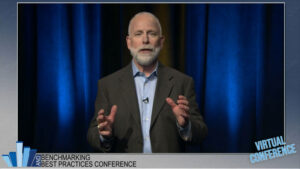 The Unpardonable Sins of Leadership
The Unpardonable Sins of Leadership
Phil Van Hooser, keynote
My definition of leadership is pretty straightforward: Leadership is the ability to offer service and the willingness to take action.
Service is meeting and/or exceeding the expectations of our customers. If we meet and exceed expectations, we never have any problems. Think of the leader/follower relationship in the same way you think of the customer/service provider relationship. Every follower, every employee, every person has expectations of their leader. On a broad scale, they always have two expectations of their leader: They want their leader to have a plan, and they want their leader to communicate that plan to those who will be called upon to enact the plan. The ability to offer service means we have to regularly, consistently and effectively communicate with our followers.
There are things we should never do as a leader – these are the unpardonable sins of leadership.
Insensitivity. Sensitivity is not only important, it’s critical. To lead effectively, we’ve got to connect with our followers. Leadership connection is all about understanding who it is that we’re interacting with and what they need. The essential element of leadership is followers. And the essential element of connecting with followers is being sensitive to those circumstances and situations they encounter.
Indifference. If we have a sense of indifference to an employee or to a follower in the workplace, that can be the kiss of death to our ability to lead, influence or impact most effectively. We should never be indifferent, but we also should never give the indications of indifference. The single most important question a leader can ask a follower is: What do you think? But a leader should never ask that question unless he or she is fully prepared to listen to the answer with an open mind and a considerate spirit.
A lack of self-discipline. Self-discipline actually means “self-control.” The single most devastating and damaging self-inflicted wound a leader can experience is associated with anger. When you lose your temper, you lose. You lose credibility, integrity and professionalism.
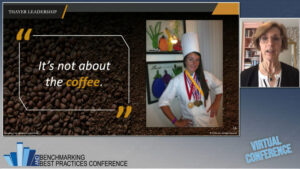 Moments that Matter
Moments that Matter
Brigadier General Maureen LeBoeuf, Thayer Leadership
This is our daughter. As you can see, Jackie is a baker. Jackie had a baking job at a boutique bakery in Honolulu. She had a 30-minute drive at the end of the day, and one day she was driving home, talking to me, and she said, “You know, Mom, there’s a recipe we make sometimes and it calls for coffee. There’s always a little bit of coffee left over and, whenever we make it, whoever makes it will offer the other bakers a little bit of coffee. Except for the head baker. When she makes that recipe, she doesn’t offer any of us coffee – she drinks it all herself.”
And then she said, “You know what, Mom? It’s not about the coffee.” Jackie knows that leading is about taking care of people. It’s not about the coffee.
Stress Testing the Business in 2020
Scott Walton, Harbour Results
The year 2020 has increased financial strain in the processing industry. With economic recovery 12 to 18 months away, take immediate steps to get through this next set of challenges.
Match supply and demand as close to 1:1 as possible. The marketplace will get tighter and forecasting is increasingly challenging, so flexibility of supply is critical to recovery or sustained performance.
Perform an honest assessment of your business in nine critical areas: management, sales and marketing, human resources, finance and administration, operations, engineering, materials, quality and program management. Use the results to develop a roadmap to close the gaps that are exposed.
Focus on financial health. Get your debt under control, manage working capital, gauge capital performance against investment and then redirect strategically. Stabilize the business by being brutally honest about the position you’re in, and don’t wait to correct course.
Drive efficiency by looking past equipment, technology and people to PROCESS. Adopt a “go see” mentality and look for physical and transactional waste.
Thank You to the Event Sponsors
Platinum Sponsors: AMCO Polymers; Carbon; DELMIAworks; Federated Insurance; Harbour Results, Inc.; MHolland; RJG
Gold Sponsors: INCOE, MBS Advisors, PolySource
Silver Sponsors: Chase Plastics, Grainger, iD Additives, JSW, Progressive Components, Stout, Vive, Yushin
Speaker Bureau Sponsors: Benesch, Epicor, Mueller Prost, Paulson Training Programs, Routsis Training, WayPoint Marketing Communications
Interactive Exhibit Sponsors: Conair, Ice Miller, Plante Moran, Plastics Business

